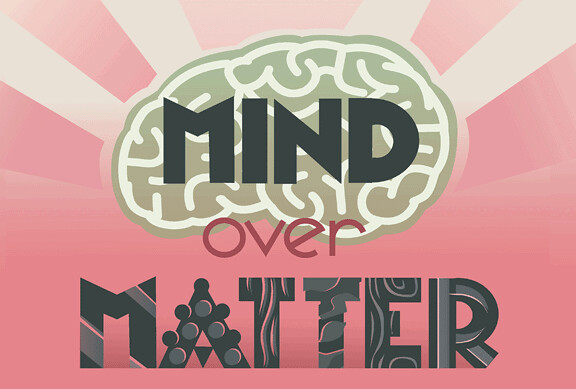Mind Over Matter: The Role of Mental Strength in Achieving Fitness Goals

Last Updated on March 2, 2024 by Haris Khan
When it comes to achieving fitness goals, physical strength and training routines often take center stage. However, the journey towards a healthier, fitter self is not solely defined by what happens in the gym or during workouts. The mind plays a pivotal role in determining your success, and cultivating mental strength is just as crucial as building physical endurance. In this exploration, we delve into the profound influence of mental strength on achieving fitness goals, highlighting how a resilient mind can empower you to overcome challenges, maintain consistency, and reach new heights of well-being.
The Mind-Body Connection: A Dynamic Duo
The mind and body are intrinsically linked, operating as a dynamic duo that shapes your experiences and outcomes. Your thoughts, emotions, and beliefs influence your physical actions, and conversely, your physical state can impact your mental state. Recognizing and harnessing this mind-body connection is a fundamental aspect of achieving fitness goals.
When you approach your fitness journey with a positive mindset, you’re more likely to remain committed, make healthier choices, and persevere through obstacles. On the flip side, negative thoughts or self-doubt can hinder progress and lead to self-sabotage. Cultivating mental strength involves nurturing a positive and empowering mindset that supports your physical efforts.
Setting Clear Intentions: The Power of Visualization
Visualization is a powerful mental tool that athletes, performers, and even fitness enthusiasts use to enhance their performance. By vividly imagining yourself achieving your fitness goals, you activate the brain’s neural pathways associated with the actual actions. This primes your body for success and enhances your focus and determination.
Whether you’re envisioning completing a challenging workout, crossing the finish line of a race, or reaching a specific weight or strength milestone, visualization solidifies your intentions. It aligns your mental landscape with your physical reality, propelling you closer to your goals. Of course if you are interested in specializing in any of these techniques it is a good idea to invest in an accredited personal trainer course for yourself so you can learn the ropes properly.
Goal Framing: From Challenges to Opportunities
The way you frame your fitness goals has a profound impact on your mindset. Instead of viewing challenges as obstacles, consider them opportunities for growth. The concept of goal framing involves shifting your perspective from “I have to” to “I get to.”
For instance, instead of viewing a demanding workout as a chore, approach it as a chance to challenge yourself, improve, and build resilience. This shift in mindset empowers you to embrace difficulties, learn from setbacks, and approach your fitness journey with enthusiasm rather than dread.
The Power of Positive Self-Talk
Your inner dialogue significantly influences your actions and reactions. Negative self-talk can erode your confidence, deter you from taking action, and hinder your progress. Conversely, positive self-talk boosts your motivation, fosters self-belief, and fuels your determination to overcome obstacles.
Practice replacing self-defeating thoughts with affirmations and positive statements. Instead of saying “I can’t do this,” say “I am capable of progress.” By rewiring your self-talk patterns, you build mental resilience that empowers you to face challenges head-on and maintain your commitment to your goals.
Resilience in the Face of Setbacks
No fitness journey is without its setbacks. Plateaus, injuries, and unexpected life events can all derail your progress. This is where mental strength truly shines – in your ability to bounce back from setbacks and stay the course.
Resilience involves acknowledging setbacks as temporary hurdles rather than permanent barriers. It’s about recognizing that progress is not always linear and that every setback presents an opportunity for learning and growth. Cultivating mental strength enables you to navigate setbacks with grace, adapt your strategies, and continue moving forward.
Mindfulness and Presence: Embracing the Now
Mindfulness is the practice of being fully present in the current moment. It’s about focusing your attention on your sensations, thoughts, and emotions without judgment. Incorporating mindfulness into your fitness journey enhances your awareness of your body’s signals and helps you tune into the physical sensations of movement.
During workouts, practice mindfulness by paying attention to your breath, the rhythm of your movements, and the sensation of your muscles engaging. This deep connection with your body enhances your overall experience, reduces stress, and promotes a sense of balance between the mental and physical aspects of your journey.
Building Confidence Through Achievements
Mental strength thrives on accomplishments – both big and small. Each time you achieve a fitness goal, no matter how modest, your confidence grows. These achievements serve as evidence of your progress and reinforce your belief in your abilities.
Setting achievable milestones along your fitness journey gives you a consistent stream of accomplishments to celebrate. These victories – whether it’s completing an extra set of repetitions, running an extra mile, or trying a new exercise – contribute to your mental resilience and remind you of your capacity for success.
Stress Management: Nurturing Balance
Life’s demands can often contribute to stress, which can impact your physical and mental well-being. The ability to manage stress is integral to maintaining a consistent fitness routine and achieving your goals.
Engaging in stress-reduction techniques such as deep breathing, meditation, or yoga helps you regulate your stress response. When your mind is more balanced, you’re better equipped to make rational decisions, stay focused on your fitness journey, and avoid emotional eating or other unhealthy coping mechanisms.
Creating Positive Habits: Consistency is Key
Mental strength plays a pivotal role in developing positive habits that support your fitness goals. Habits are essentially automated behaviors that are formed through repetition and consistency. Cultivating mental strength enables you to overcome the resistance that often accompanies change and establish these habits effectively.
Whether it’s waking up early for a morning jog, choosing nutritious meals, or dedicating time for regular workouts, mental strength helps you remain committed to these habits even when the initial motivation wanes. Over time, these habits become integral parts of your lifestyle, contributing to sustainable progress.
Overcoming Perfectionism: Progress Over Perfection
Perfectionism can be a stumbling block on your fitness journey. The pursuit of perfection often leads to feelings of inadequacy, frustration, and even burnout. Instead of striving for perfection, prioritize progress.
Mental strength involves embracing imperfections as part of the process. Recognize that setbacks and less-than-perfect moments are opportunities for growth. Embracing progress over perfection allows you to maintain a balanced and sustainable approach to your fitness goals.
Seeking Support and Accountability
The journey towards fitness is not a solitary endeavor. Seeking support and accountability from friends, family, or even a personal trainer can significantly boost your mental strength. Having someone to share your successes, setbacks, and challenges with creates a sense of camaraderie that bolsters your motivation.
Accountability partners offer encouragement, celebrate your achievements, and provide a perspective that can help you navigate obstacles. This support network reinforces your mental resilience, reminding you that you’re not alone on this journey.
Visualization for Success
Visualization isn’t limited to setting clear intentions; it also involves visualizing your success. Imagine yourself reaching your fitness goals, experiencing the feelings of accomplishment, and embodying the version of yourself you aspire to be.
Visualizing success instills confidence and primes your mind for achievement. It reinforces your commitment to your fitness journey and acts as a powerful motivator during challenging moments. Visualization aligns your mental state with your desired outcomes, creating a harmonious flow between your thoughts and actions.
In Conclusion
Achieving fitness goals isn’t solely about physical prowess; it’s a harmonious interplay of mental strength and physical effort. By cultivating mental resilience, you equip yourself with the tools needed to overcome obstacles, navigate setbacks, and stay committed to your journey.
Remember that building mental strength is an ongoing process that requires self-awareness, practice, and patience. Just as you train your body, invest time in training your mind. Embrace the power of positive self-talk, visualization, resilience, and mindfulness. By harnessing the strength of your mind, you pave the way for a more holistic and transformative fitness journey – one that empowers you to achieve not only your physical goals but also a deeper sense of well-being and self-empowerment.




